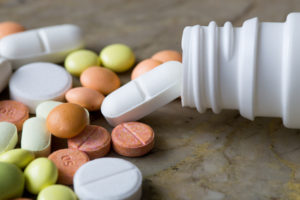Addiction medication assisted treatment
 Too much time is spent arguing about the ‘right’ way to cure drug and alcohol addiction. Given the havoc that alcohol and drug abuse can wreak on the lives of the abuser, family, and friends, the only important thing is what works. Debate is crucial, but it should be based on evidence and results. Unfortunately, many people still believe that using addiction medication is ‘cheating’. Nicotine patches are universally accepted as a valid way of fighting tobacco addiction – even though they don’t work for everyone. This is because tobacco addiction is understood to be a chemical dependency, not a moral failing. We believe all forms of addiction should be approached in the same way.
Too much time is spent arguing about the ‘right’ way to cure drug and alcohol addiction. Given the havoc that alcohol and drug abuse can wreak on the lives of the abuser, family, and friends, the only important thing is what works. Debate is crucial, but it should be based on evidence and results. Unfortunately, many people still believe that using addiction medication is ‘cheating’. Nicotine patches are universally accepted as a valid way of fighting tobacco addiction – even though they don’t work for everyone. This is because tobacco addiction is understood to be a chemical dependency, not a moral failing. We believe all forms of addiction should be approached in the same way.
It is important to emphasize that addiction medication should only be used according to the instructions of a licensed medical professional. Medication-assisted treatment should also be part of a treatment program that includes therapy and support.
Naltrexone (Vivitrol®, Revia®)
Naltrexone blocks opiates and similar drugs, especially alcohol, from having their normal effect on the brain. Addiction to alcohol is a vicious cycle. Taking a drink makes the alcoholic feel immediately feel good, but then leaves him or her feeling worse, generating cravings for the drug. As the brain adapts to chronic alcohol use, the highs become less intense, and the lows stronger. This pushes the addict to increase the dose, which further intensifies the process. Naltrexone breaks this cycle by blocking the drug from having its usual effect. Over time the brain returns to normal, and cravings are diminished.
There are two common ways of using Naltrexone. In the ‘Sinclair Method’ patients take naltrexone one to two hours before drinking. Alternatively, naltrexone can be administered on a daily basis.
Naltrexone is used most successfully to treat alcohol addiction. It is also used to treat addiction to opiates, including heroin and prescription painkillers, usually after detox. Research is underway on its use treating non-chemical impulse disorders, such as compulsive gambling. The effectiveness of Naltrexone in treating alcohol dependency depends on genetic factors, in particular, the presence of a gene, Asp40, found in about 30% of Americans.
Buprenorphine (Suboxone®)
Buprenorphine works as a substitute for opioids. This means that if you are addicted to heroin or painkillers, buprenorphine can satisfy cravings without making you high and without generating stronger withdrawal symptoms. The process is like switching addictions to a new drug that is much less dangerous and easier to quit. Buprenorphine works in a similar way to methadone, but has fewer side effects and is harder to abuse. This means it can be administered more widely outside addiction clinics. Suboxone is a combination of buprenorphine and naloxone, which is an opioid blocker like naltrexone. This further prevents abuse of the buprenorphine through snorting or injecting.
Research is underway on the possibility of using buprenorphine to combat cocaine addiction.
Acamprosate (Campral®)
Acamprosate is a drug used for alcohol dependency that helps restore the balance of chemicals in the brain that is upset by heavy drinking. It is only effective for those who have already stopped drinking. The mechanism by which it works is not well understood and it has a number of side effects.
Disulfiram (Antabuse®)
Disulfiram is a form of addiction medication that works by turning alcohol drinking into such an unpleasant experience that even a severely alcohol-dependent person will gain no enjoyment from drinking. Essentially, it speeds up the metabolism of alcohol so that the drinker gets a hangover before he has a chance to get drunk. Disulfiram does not reduce cravings for alcohol and it requires a high degree of discipline to keep using it.
Reach out today
At the Eastside Center for Family we believe firmly that every individual struggling with drug or alcohol dependency deserves an individualized treatment program, using every appropriate option that is available. For some, this will include addiction medication in conjunction with therapy. We work with medical professionals to provide the help you need. For more information, call today or fill out the contact form and click Send.



